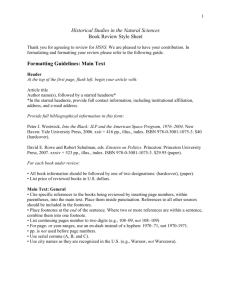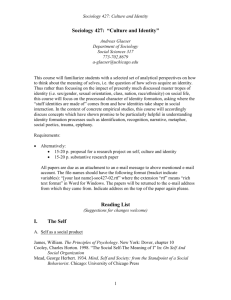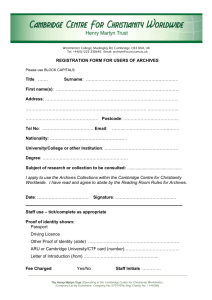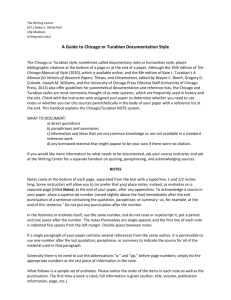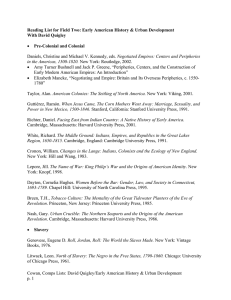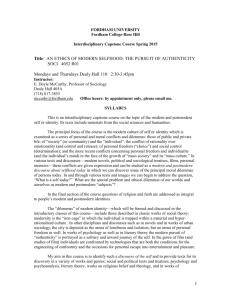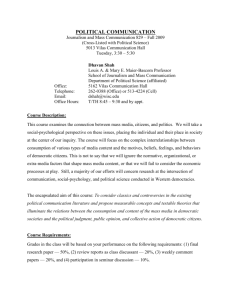Hermeneutic Sociology
advertisement
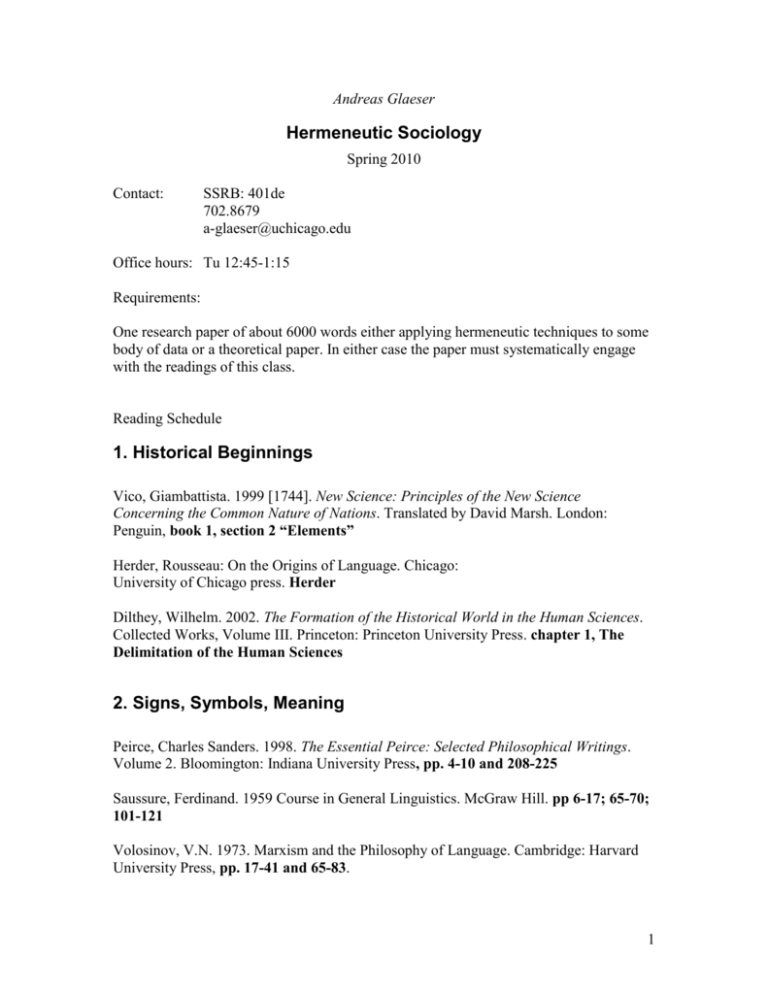
Andreas Glaeser Hermeneutic Sociology Spring 2010 Contact: SSRB: 401de 702.8679 a-glaeser@uchicago.edu Office hours: Tu 12:45-1:15 Requirements: One research paper of about 6000 words either applying hermeneutic techniques to some body of data or a theoretical paper. In either case the paper must systematically engage with the readings of this class. Reading Schedule 1. Historical Beginnings Vico, Giambattista. 1999 [1744]. New Science: Principles of the New Science Concerning the Common Nature of Nations. Translated by David Marsh. London: Penguin, book 1, section 2 “Elements” Herder, Rousseau: On the Origins of Language. Chicago: University of Chicago press. Herder Dilthey, Wilhelm. 2002. The Formation of the Historical World in the Human Sciences. Collected Works, Volume III. Princeton: Princeton University Press. chapter 1, The Delimitation of the Human Sciences 2. Signs, Symbols, Meaning Peirce, Charles Sanders. 1998. The Essential Peirce: Selected Philosophical Writings. Volume 2. Bloomington: Indiana University Press, pp. 4-10 and 208-225 Saussure, Ferdinand. 1959 Course in General Linguistics. McGraw Hill. pp 6-17; 65-70; 101-121 Volosinov, V.N. 1973. Marxism and the Philosophy of Language. Cambridge: Harvard University Press, pp. 17-41 and 65-83. 1 Gehlen, Arnold. 1988. Man. New York: Columbia University Press. Introduction 3. Expressions Freud, Sigmund Beyond the Pleasure Principle. New York: Norton. Sections 1-4 Latour, Bruno. 1999. Pandora's Hope. Cambridge: Harvard University Press, chapter 2, pp. 24-79. Geertz, Clifford. 1973. The Interpretation of Cultures. New York: Basic Books: chapter 15, “Deep Play” Notes on the Balinese Cockfight Simmel, Georg. 1971. On Individuality and Social Forms. Chicago: University of Chicago Press. chapter 19 “Fashion” Katz, Jack. 1999. How Emotions Work. Chicago: University of Chicago Press. chapter 1 “Pissed in LA Wolfgang Iser. 1993. The Fictive and the Imaginary. Charting Literary Anthropology. Baltimore: Johns Hopkins University Press. chapter 1 4. Interpretation Iser, Wolfgang. The Act of Reading. Baltimore: Johns Hopkins University Press, selections, tba Ricoeur, Paul. 1981. Hermeneutics and the Human Sciences: Essays on Language, Interpretation and Action. Cambridge: Cambridge University Press, chapter 8 “The text as a Model” Geertz, Clifford. 1973. The Interpretation of Cultures. New York: Basic Books: chapter 1, Thick Description Mitchell, W.J.T. 1994. Picture Theory. Chicago: University of Chicago Press, chapter 1, 2 5. Counting on Interpretation Eco, Umberto. The Role of the Reader: Explorations in the Semiotics of Texts. Bloomington: Indiana University Press, pp. 3-43 2 Burke, Kenneth. 1969. A Rhetoric of Motives. Berkekely: University of California Press, pp. 19Burke, Kenneth, 1989. On Symbols and Society. Chicago: University of Chicago Press, chapter 13 “Rhetorical Analysis” Baumann, Richard. “Verbal Art As Performance,” American Anthropoloist (JSTOR) 6. Narratives and Metaphors White, Hayden. 1973. Metahistory: The Historical Imagination in Nineteenth Century Europe. pp. 1-42 Ricoeur, Paul. Bakhtin, Mikhail. 1986. “The Problem of Speech Genres” in same: Speech Genres and other Late Essays. Austin: University of Texas Press, pp. 60-102 Ricoeur, Paul. 1981. Hermeneutics and the Human Sciences: Essays on Language, Interpretation and Action. Cambridge: Cambridge University Press, chapter 11, “The Narrative Function” Ortony, Andrew. 1993. Metaphor and Thought. Second Edition. Cambridge: Cambridge University Press. Whorf, Benjamin. 1956. Language, Thought and Reality. Cambridge: MIT Press.”The relation of habitual thought and behavior to language” 7. Speaking/Acting—Language Games Wittgenstein, Ludwig. 1953. Philosophical Investigations. Oxford Blackwell selections 8. Speech Act Theory Austin, John. 1962. How to do Things with Words. Cambridge: Harvard University Press 9. Institutions Glaeser, Andreas. in print. Political Epistemics: The Secret Police, the Opposition and the End of East German Socialism. Preface, Introduction Discussion 3
